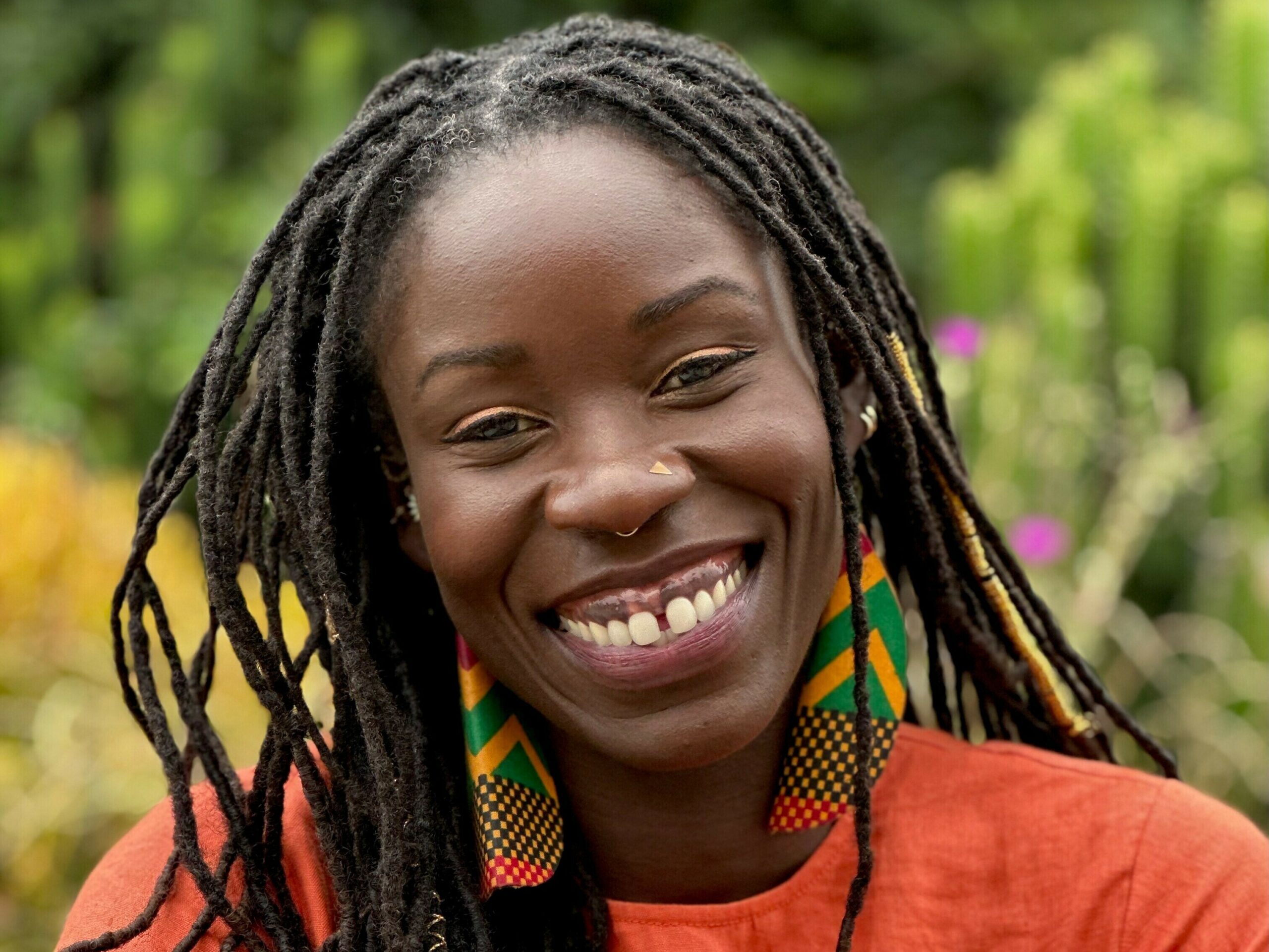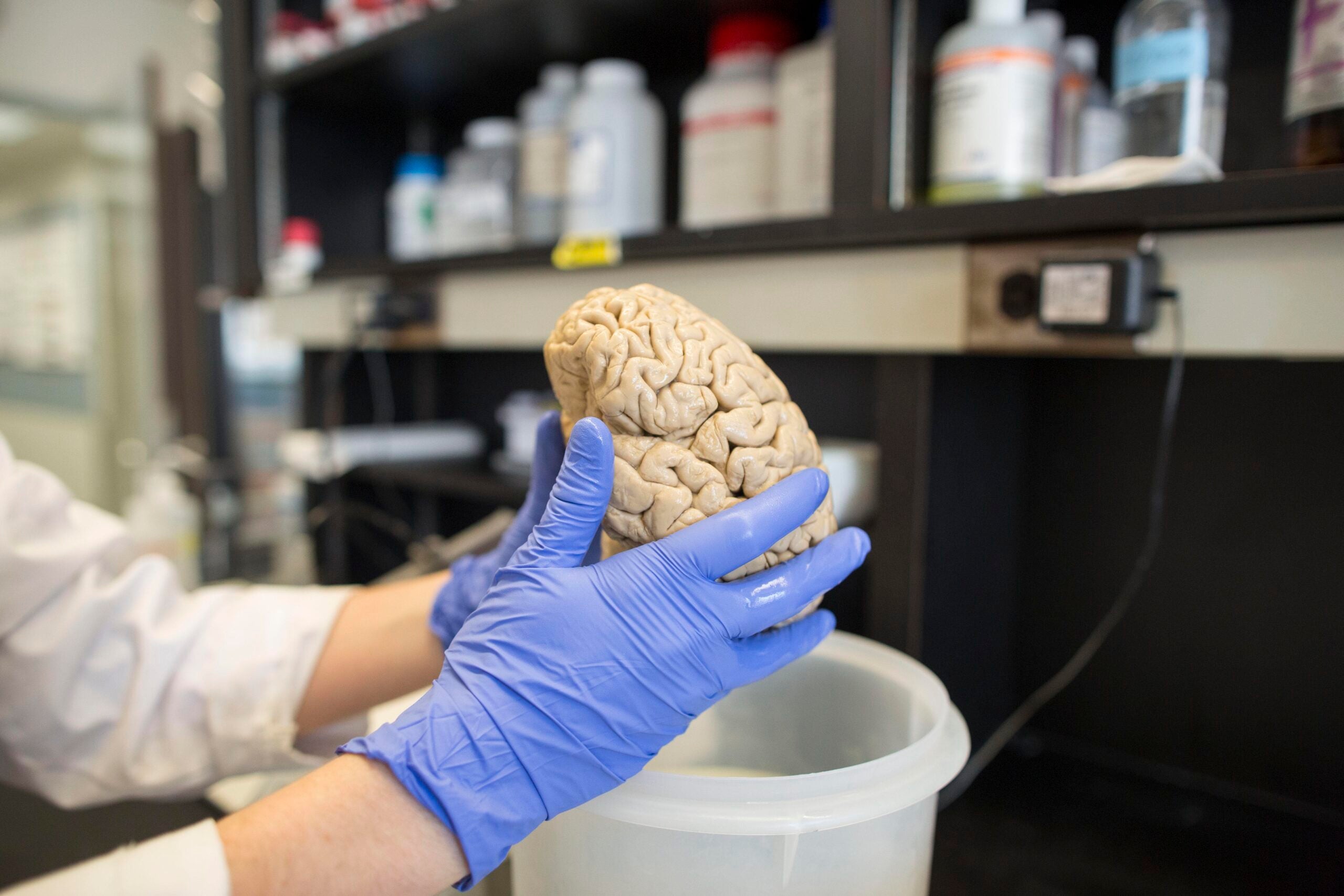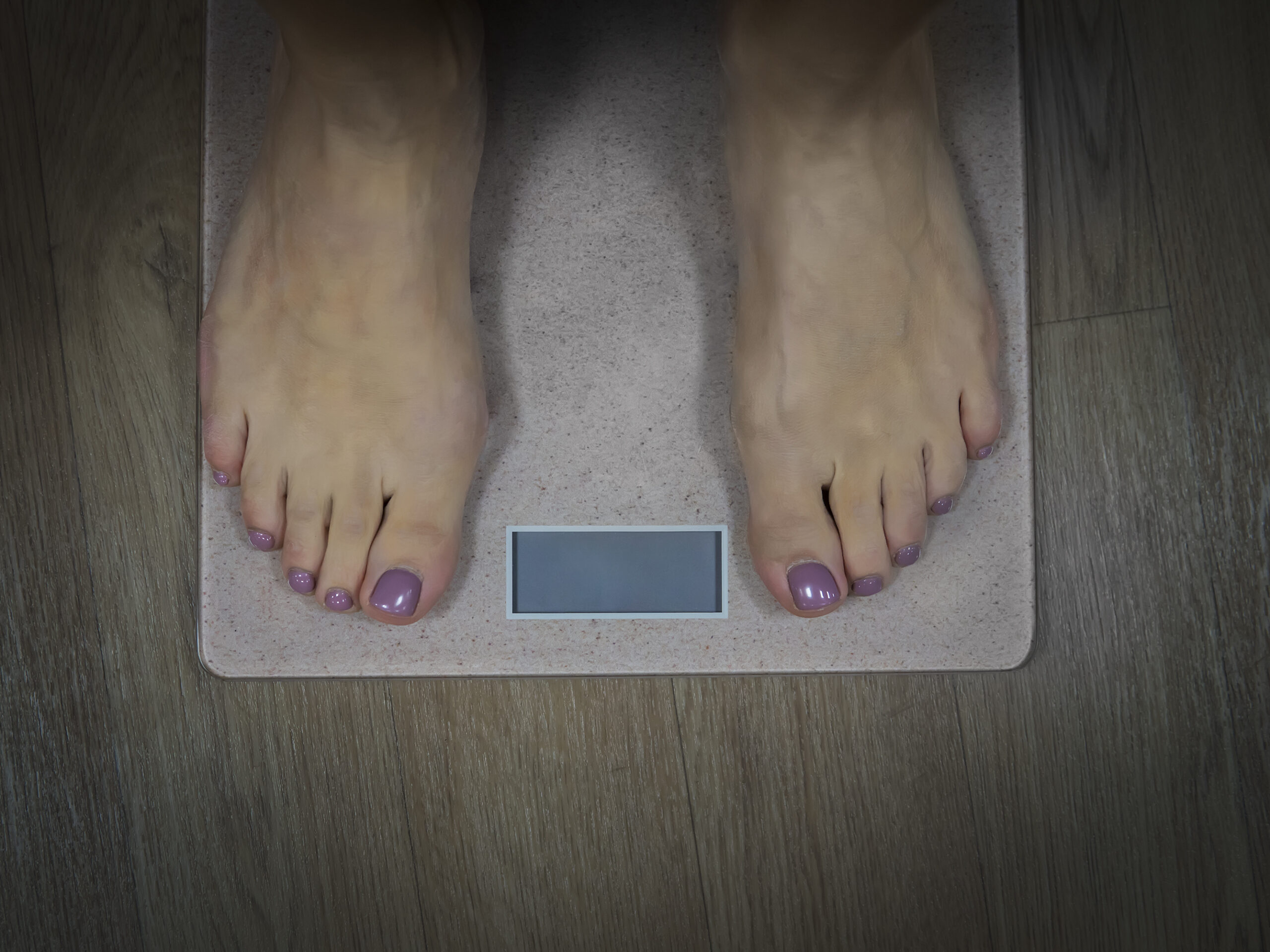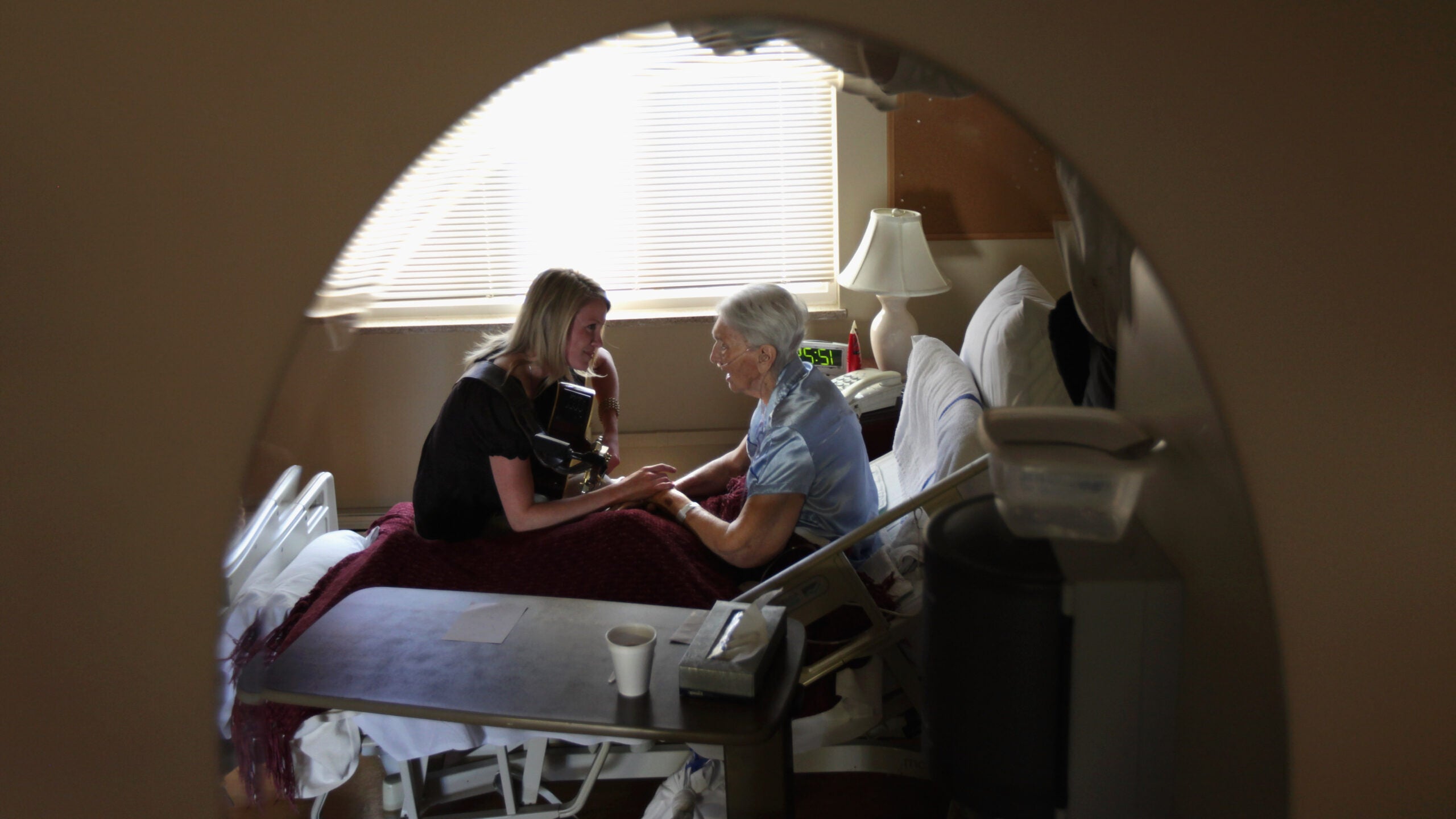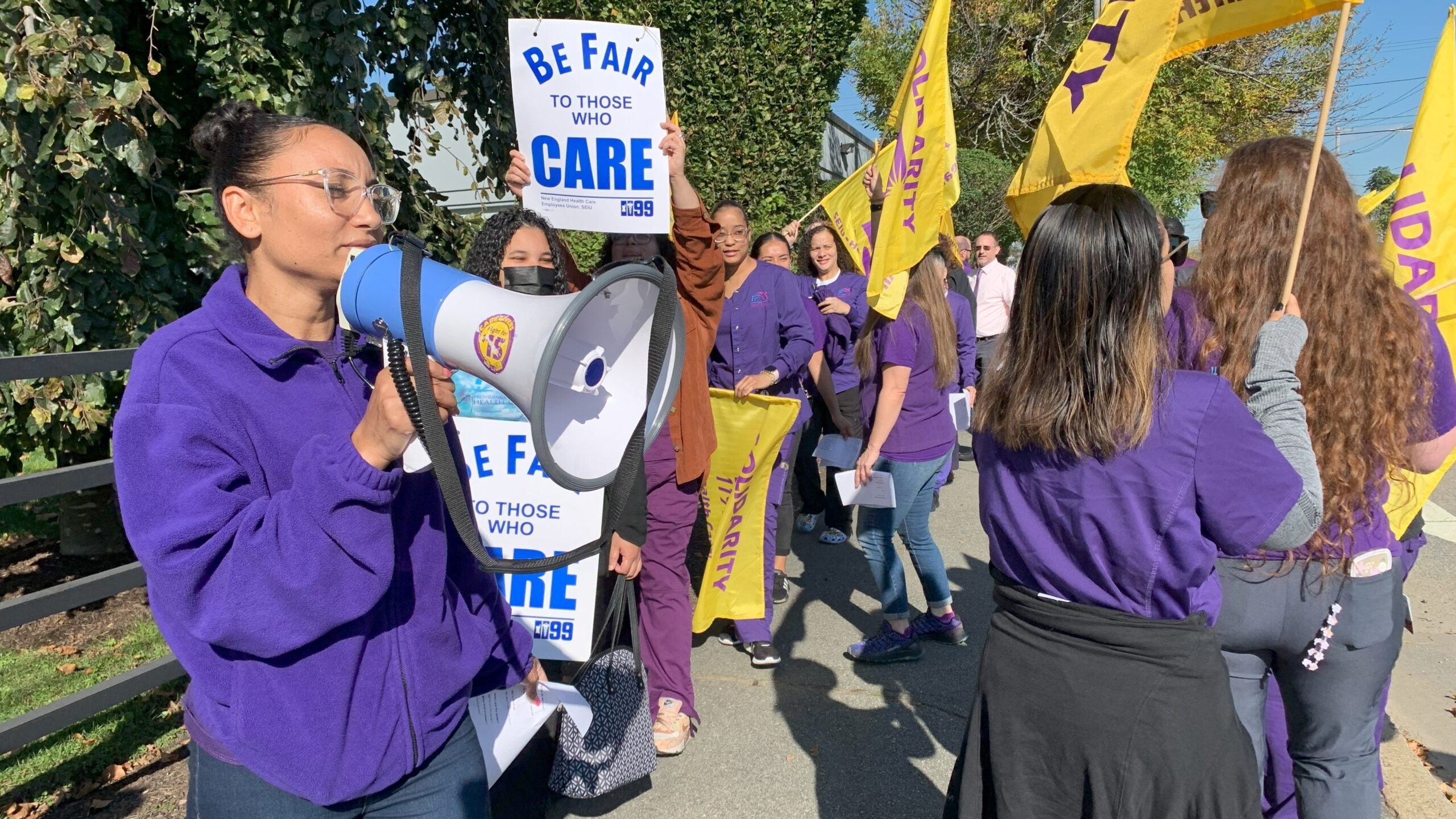My mom died of Alzheimer’s back in 1981. You can imagine what it was like, but imagining is different from living through it.
She had been sick for seven years — always remembering who I was, but forgetting my name. I could see in her eyes that she knew I was her son, but her tongue just couldn’t get out the words. It was quite sad.
She went into the hospital with pneumonia, the doctors telling my dad they would do everything they could to “save her,” and my father thinking she would recover and return to her old self.
Stay informed on the latest news
Sign up for WPR’s email newsletter.
I can’t blame him for thinking that — they had been married for 50 years, and he carried the memories and love for her from all that time.
At the hospital, they pumped and pumped her with antibiotics for weeks, trying to get her double pneumonia under control with no thought about palliative measures. Remember, this was at an early stage of the hospice movement, where compassionate care meant strapping people down with IVs to make sure they received fluids, etc., even though the human at the other end might have just wanted to stop drinking and let nature take its course.
Eventually, I confronted her doctor, asking what he thought he was doing. Maybe we should give her comfort measures, I said. After all, she did have severe Alzheimer’s, complete with all the attendant disorientation, wandering, swallowing difficulties, incontinence, soiling and more.
He countered with, and I quote, “Don’t you want to save your mother?”
I was livid. I don’t often lose my temper; it’s simply not in my mojo. But this was one time that losing it was more than OK.
I answered with a diatribe about what I had learned about the hospice movement and palliative care, ending with the suggestion that perhaps a call to my good lawyer friend who, by the way, happens to sue doctors would help convince this particular doctor to stop chaining my mom to the bedpost to keep her IV in and just give her comfort measures.
That’s when he stopped tormenting her and started being a doctor, attending to her comfort and letting her go gently.
Gently.
I thought about that recently when I read a research paper published in the Journal of the American Medical Association showing that physicians are less likely to die in the hospital, die in the ICU, and more likely to die at home. And they are much more likely to be less aggressive with treatment at the end of their lives than are our patients.
That’s right. When it comes to our own care, we physicians are more likely to say let’s look at this realistically. It’s time to stop with the IVs and the chemo, and it’s better to see what we can do to improve the quality of the life we have left.
At least that’s what it appears we do for ourselves, but it’s not what we do for our patients.
So where is the disconnect? Does it start with our training as doctors? Is it our competitive nature to want to say we “saved” the patient? Is it because we don’t want to give up, even though death is inevitable for all of us. As I have said before: Death is not an elective event; it is prescribed.
Or does this come from our patients and family who have unrealistic expectations, who haven’t been educated about what the outcome really will be?
Perhaps they feel if they don’t do everything possible, they have failed — and they have not given as much as they could for the loved one who is leaving them.
I think it’s a combination of both. There are unrealistic expectations on both sides, in no small part because of the medical advances that have given us so much we sometimes don’t know when to stop.
But let’s go back and remember this study showing that physicians seem to know when to stop when it comes to their own life better than when they counsel others.
If you like to read, as do I, get physician and author Atul Gawande’s book “Being Mortal.” I saw him when he spoke at Epic — he is a remarkable healer, and his book is an eye-opener.
My spin: If you or a loved one has a devastating disease, always do the old truth trick: Ask your doctor what they would do if it were them or a member of their own family. You might be surprised by what you hear.
Stay well.
Wisconsin Public Radio, © Copyright 2024, Board of Regents of the University of Wisconsin System and Wisconsin Educational Communications Board.


